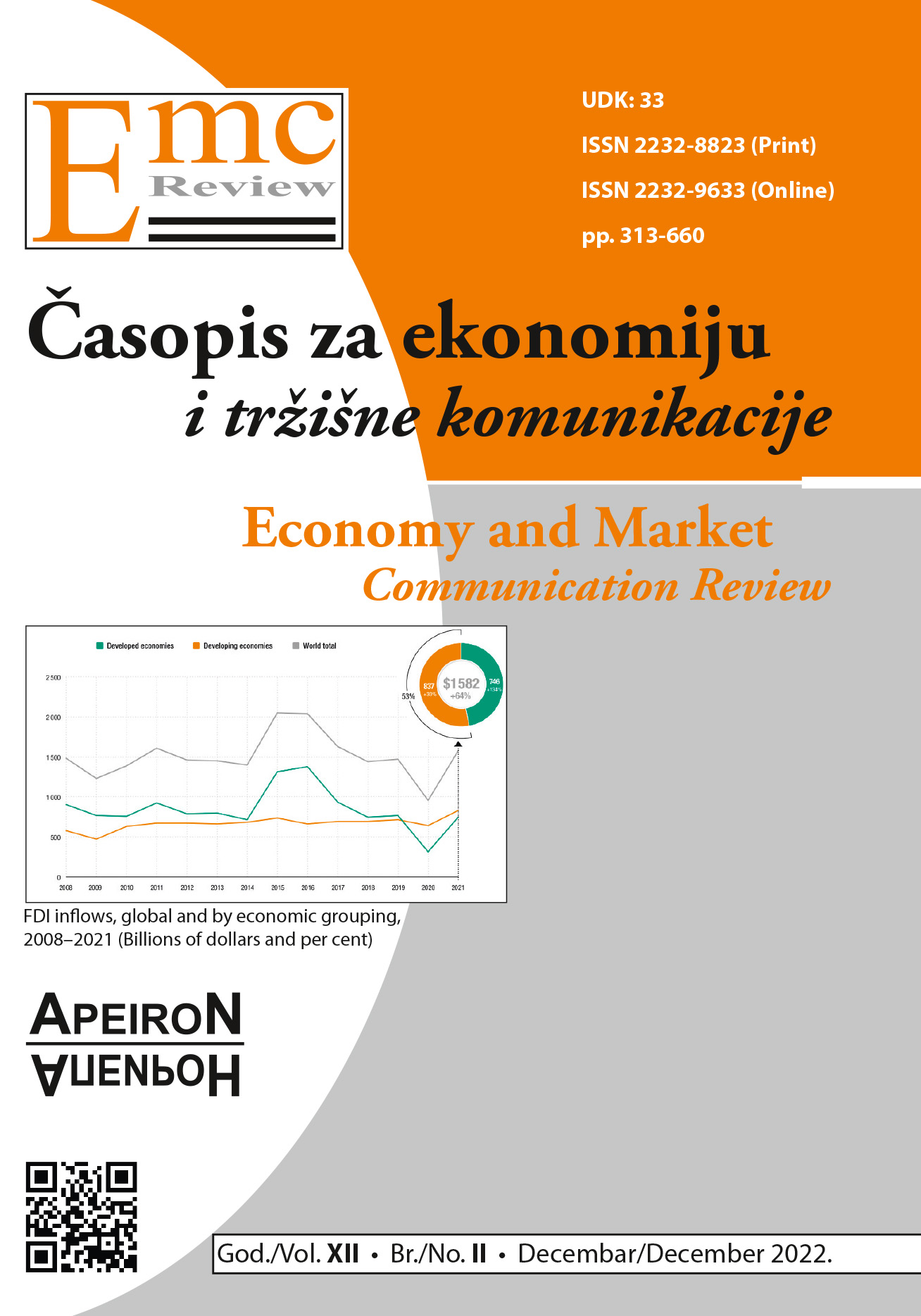THE EFFECT OF INFLATION ON TAX REVENUES IN THE REPUBLIC OF SERBIA
DOI:
https://doi.org/10.7251/EMC2202539DJAbstract
The connection between public revenues and inflation has long been observed and many theoretical works and empirical researches have been devoted to them. Public revenues represent the largest share of a country’s income. That is, they represent the revenues that the state achieves through its economic activity and financial sovereignty. Revenues that are collected continuously or periodically, with the help of which the state collects and accumulates its economic strength. Inflation is often said to be good for public finances, with essentially two arguments. First, rising consumer prices mechanically raise VAT revenues, wage increases mechanically raise social contributions paid, and so on for every levy raised on a nominal basis. The second argument is that the national debt is fixed, e.g. in dollars or euros, so if this debt is divided by the growing nominal GDP, that ratio decreases. In other words, it becomes easier to repay a debt that has not changed. These two arguments are not wrong, but they forget important elements, especially the origin of inflation, which in this case is caused by global events. The research problem answered to what extent inflation affects the tax revenues of the Republic of Serbia. During the observed year, inflation experienced significant oscillations as a result of events on the world market, which also had an impact on the Republic of Serbia. The aim of the work was to examine how the change in the level of inflation affects the level of total income in the Republic of Serbia in the period from January to July 2022. Secondary data from the following databases were used to interpret the dynamics of the influence of inflationary oscillations: CeicData, Worldbank, Eurostat and official data of the Ministry of Finance of the Republic of Serbia. We investigated the relationship between the level of inflation and total revenues through the analysis of a single-column linear regression model and scientifically proved how inflation affects the level of tax revenues. The paper is organized in four parts as follows: after the literature review, the data and methodology of the study are presented, the fourth part focuses on the research results, and the last part is dedicated to the conclusions. The obtained research results proved that there is a strong correlation between the level of inflation and the level of tax revenues, the coefficients show that there is a linear connection and a continuous normal distribution of the data observed during the current year 2022 by month. Establishing a balance between inflation growth and income growth will be one of the main tasks. Such a high rate of inflation has not been seen in Serbia since 2013, and in some Western countries, that past is measured over decades. There is also a big question as to when income growth will be able to keep up with inflation growth and what kind of economic policies Serbia will have. It is precisely for this reason that public revenues and public expenditures must have a balance.
